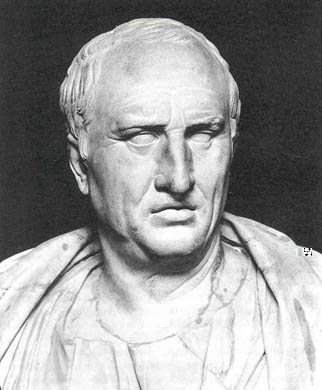Donald Clark weighs in with some heavy criticism of the Open University's openlearn project. Some of his criticism is valid, but a lot isn't.
It’s really no more than a repository of old OU print documents with some tools on top.
This is a naive view of just how much effort it takes to convert existing material. These aren't simply PDFs of existing units. The trouble is with taking legacy material and converting it - often there are cross references that don't make sense, outdated historical references, and mention of the overall course context (e.g. 'In your assignment'). The openlearn team thus needed to create a system for 'scrubbing' material to make it contextually independent and then putting it online.
To be honest I think I could have published this lot using free software in less than a week or two.
Believe me Donald, you couldn't, for all the reasons I've mentioned above.
Moodle is famously free, but dwell on the fact that the OU have spent a cool million in development time for this ONE implementation. Perhaps the most expensive free lunch on record.
Here he is confusing the spend on adapting, implementing and improving Moodle as the OU's central VLE, ie for use on our courses, and not for the openlearn project, which is just a side project. Is it just me or is there some anti-open source sentiment underlying this?
As I sampled many of the courses it struck me how weak much of the content was in terms of academic credibility. Like many course notes written from within an institution, rather than published text, it has the feel of being cobbled together by good experts, but not the best.
Here we are coming from different backgrounds. The material was written for independent studiers, who are isolated and at a distance. It may not be exciting, but it does work academically. This is why people study rather than just reading airport business books.
Interestingly, not a single lecture online.
Here he is showing his ignorance of the OU. We don't do lectures. We're a distance education university.
It’s only 5% of the OU output but the course choices do seem a little odd.
The choices have been made in order to give a coverage across all subject areas, and sometimes expediency has won out - e.g. which courses can be converted quickly. Much of the project has been about establishing a set of systems so that future content can be delivered.
The levels of interaction are abysmal and there’s no real assessment
The aim of openlearn was always to take existing OU material and make it freely available, NOT to develop new material specifically for the project. But this is where I begin to agree with him, interaction is low and informal assessment could be better.
I still love the OU and all it stands for, even if it is dragged down by the desire of its academics to mimic every other university.
I simply don't understand this catty comment. In what way are OU academics trying to mimic every other university?
Seb Schmoller takes a more reasoned response:
The impression you get is that there was internal pressure from those saying "but we depend on people to pay for our courses, we cannot risk putting some of the 'top sellers' into Open Learn".
I was involved in the initial phase of openlearn, and why I can understand Seb saying this, it isn't actually the case. We were quite keen to explore the business implications and not make it just a 'taster' site. I think the choices have been driven more by which academics have come forward with courses, what are available, what can be converted, etc.
I think that if the OU does not use OpenLearn to showcase its best stuff, the OpenLearn initiative risks being judged as some rather pedestrian content sitting in a (possibly) innovative environment. That would be a major missed opportunity.
I think there is something in this, openlearn is worthy, and useful, but it could be more. The team have focused hard on getting some of the boring stuff done which isn't sexy, but does set the framework for a sustainable model of opening up content. Now the challenge is to do more with it. In case he is too modest to do it I would point to the work Tony Hirst has done in taking openlearn content and mashing it around as a good model.
I think overall openlearn has been guilty of veering into a traditional, university type model (top down, quality assured, proper processes, etc) rather than a more radical 2.0 approach, but in both content and intent it represents a huge step forward for both the OU and UK Higher education. After all, I don't see Epic releasing all their courses for free.




 John recently posted
John recently posted The official launch of the
The official launch of the Cato was the purist, unbending and uncompromising. Cicero was the pragmatist, willing to compromise and work with a range of people to advance the republic. Cato often thought Cicero compromised too much, thus rendering his beliefs invalid. Cicero was often infuriated that Cato wouldn't compromise and through this played in to the hands of the anti-republicans. Taking our modern day counterparts, it seems to me that most of Stephen's objection comes down to the inclusion of commercial entities in the CTD, e.g.
Cato was the purist, unbending and uncompromising. Cicero was the pragmatist, willing to compromise and work with a range of people to advance the republic. Cato often thought Cicero compromised too much, thus rendering his beliefs invalid. Cicero was often infuriated that Cato wouldn't compromise and through this played in to the hands of the anti-republicans. Taking our modern day counterparts, it seems to me that most of Stephen's objection comes down to the inclusion of commercial entities in the CTD, e.g. 